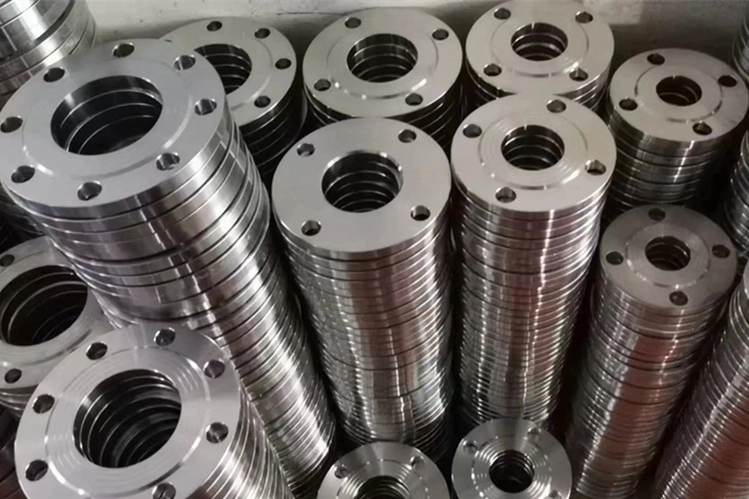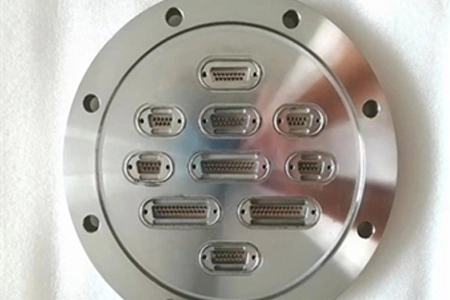Titanium CNC machining is a specialized field that combines advanced technology with material science to produce components for high-stress, corrosive, and precision-critical applications. At Falcon CNC Machining, we leverage state-of-the-art equipment and decades of expertise to deliver titanium parts that meet the rigorous demands of industries like medical, automotive, and renewable energy. This guide provides actionable insights into titanium machining processes, material selection, and best practices.
1.What is Titanium CNC Machining?
Titanium CNC machining involves shaping titanium alloys into precision components using computer-controlled milling, turning, or drilling. Known for its exceptional strength-to-weight ratio, corrosion resistance, and biocompatibility, titanium is ideal for applications requiring durability in extreme environments68. However, its low thermal conductivity and high hardness demand specialized tooling and techniques to avoid tool wear and ensure dimensional accuracy.

2.Titanium CNC Machining Processes
5-Axis CNC Milling: Ideal for complex geometries like orthopedic implants or heat exchangers. Our HAAS UMC-750 machines achieve tolerances of ±0.005 mm while managing heat buildup through optimized toolpaths.
Swiss-Type CNC Turning: Perfect for small, high-precision components like surgical screws or hydraulic fittings. Submicron spindle control minimizes deflection in thin-walled designs.
Wire EDM: Used for intricate cuts in titanium sheets up to 200 mm thick, ensuring no thermal distortion for optical or medical components.
Surface Treatments: Electropolishing (for biocompatibility), hardcoat anodizing (wear resistance), and PVD coatings (aesthetic durability) enhance part performance.
3.Common Titanium Alloys for Machining
Grade 2 (Commercially Pure Titanium): High ductility and corrosion resistance for marine hardware and chemical processing equipment.
Ti-6Al-4V (Grade 5): The most widely used alloy, offering strength and biocompatibility for medical implants and automotive valves.
Ti-6Al-4V ELI: Low oxygen variant for medical devices requiring superior fracture resistance.
Ti-3Al-2.5V: High fatigue resistance for hydraulic tubing and bicycle frames.
Ti-10V-2Fe-3Al: Ultra-high strength for industrial machinery gears and heavy-duty fasteners.
Grade 9 (Ti-3Al-2.5V): Lightweight and weldable for aerospace-excluded applications like submarine components.
Ti-5Al-2.5Sn: Excellent low-temperature performance for cryogenic storage systems.
4.Industry Applications
Medical: Surgical instruments, spinal implants, and MRI-compatible housings.
Automotive: Lightweight engine valves, turbocharger components, and EV battery housings.
Marine: Corrosion-resistant propeller shafts, subsea connectors, and desalination plant fittings.
Renewable Energy: Heat exchanger plates for solar thermal systems and wind turbine bearings.
Optical: Precision mounts for laser systems and telescope components requiring thermal stability.
Industrial Machinery: High-stress gears, pump rotors, and hydraulic valve bodies.
Consumer Goods: Durable watch cases, bicycle frames, and high-end audio equipment parts.
Petrochemical: Reactor vessels and piping for corrosive chemical processing.
5.High-Volume Titanium Machining Capabilities
Our facility supports scalable production with:
150 CNC Machines: Including 5-axis mills and multi-spindle lathes for batch sizes up to 20,000 units/month.
ISO 9001-Certified QC: Coordinate measuring machines (CMM) and X-ray inspections ensure compliance with medical and automotive standards.
Just-in-Time Delivery: Lean workflows reduce lead times by 30% for industries like automotive and renewable energy.

6.7 Expert Tips for Effective Titanium Machining
Tool Selection: Use sharp, uncoated carbide tools with high helix angles (40–45°) to reduce heat and chip adhesion.
Coolant Strategy: High-pressure flood cooling (≥1,000 psi) prevents work hardening and extends tool life.
Speed and Feed Optimization: Maintain spindle speeds between 50–150 SFM for milling and 200–400 SFM for turning.
Chip Control: Use peck drilling and chip breakers to avoid entanglement in deep-hole operations.
Fixture Rigidity: Hydraulic clamping or vacuum chucks minimize vibration in thin-walled parts.
Post-Machining Stress Relief: Annealing at 1,200°F (650°C) eliminates residual stresses in critical components.
Surface Finish Optimization: Electropolishing reduces friction in medical implants, while bead blasting improves fatigue resistance.
7.Key Factors When Choosing a Titanium Machining Partner
Material Expertise: Verify experience with your alloy (e.g., Grade 5 vs. Ti-10-2-3).
Certifications: ISO 13485 for medical parts or AS9100 for industrial applications.
Prototyping Support: Rapid turnaround for design validation reduces time-to-market.
Sustainability: Closed-loop coolant systems and titanium scrap recycling programs minimize environmental impact.
Why Choose Falcon CNC Machining?
Precision: Achieve ±0.002 mm tolerances with our Okuma MULTUS U3000 and DMG Mori machines.
Versatility: From micro medical screws to large marine components, we handle complex geometries.
Cost Efficiency: Bulk material sourcing and in-house finishing reduce costs by 15–20%.
Global Support: Fast shipping to North America, Europe, and Asia with 24/7 technical assistance.
8.FAQs About Titanium CNC Machining
Q: What surface finishes are available for titanium parts?
A: Options include electropolishing (medical), bead blasting (aesthetic), and PVD coatings (wear resistance).
Q: Can you machine thin-walled titanium components without distortion?
A: Yes, our Swiss-type lathes and vacuum fixtures ensure stability for walls as thin as 0.2 mm.
Q: How does titanium compare to stainless steel in machining?
A: Titanium is 45% lighter and more corrosion-resistant but requires slower speeds to manage heat.
Q: Which industries use titanium most outside aerospace?
A: Medical, automotive, and marine sectors rely on titanium for its biocompatibility and durability.
Q: Do you provide DFM (Design for Manufacturing) support?
A: Yes, our engineers optimize designs for cost, tooling efficiency, and performance.
Elevate your projects with Falcon CNC Machining’s titanium expertise. Contact us for precision components that exceed industry standards!